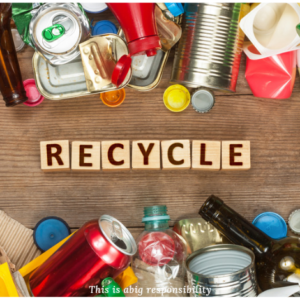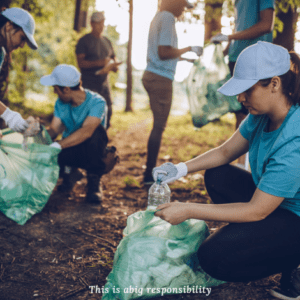
Embarking on the journey of sustainability is all about innovation and responsibility. The starting point is awareness, a journey disseminated through education and information.
There are various ways to promote sustainability, such as:
- Waste reduction: Encouraging the use of reusable products, promoting recycling, and proper waste disposal.
- Efficient use of resources: Adopting practices that maximize the use of natural resources, reducing waste.
- Green business practices: Supporting companies committed to sustainability in their operations.
Each of us can contribute to a greener and balanced future.
The Fundamental Concept of Sustainability
Sustainability encompasses the continuity of economic, social, cultural, and environmental aspects of human society. Inherently linked to the future of our planet, this approach seeks to balance economic growth with environmental preservation.
The three pillars of sustainability are:
- Respect for the environment
- Social equity
- Economic viability
The importance of sustainability is undeniable, ensuring that current needs are met without compromising the future of the next generations.
Environmental Sustainability: Our Role in the Ecosystem
Environmental sustainability is directly linked to our relationship with the environment. The goal is to use natural resources intelligently, minimizing the impact on our ecosystem. This includes actions such as:
- Sustainable use of natural resources: Consciously using water, proper soil management, among others.
- Recycling and proper waste disposal: Reducing waste and pollution.
Companies like Natura already adopt exemplary practices, using recyclable packaging in their products.
Our responsibility in promoting environmental sustainability directly impacts the future of our planet.
10 Pillars for Caring for the Environment – ToolBox Talk
Social Sustainability: Building a Fairer World
Social sustainability is crucial for a green and balanced future. It focuses on promoting social equity, ensuring fair access to resources and opportunities. This involves:
- Inclusion and diversity: Sustainable practices should consider all layers of society, including marginalized communities.
- Impact on local communities: Sustainable actions should directly benefit both urban and rural communities.
Initiatives for social sustainability include inclusive education programs, community income generation projects, and workplace diversity policies. These are just a few ways sustainability can drive social justice and build a more balanced future for everyone.
Economic Sustainability: Balancing Growth and Preservation
Economic sustainability aims to reconcile economic growth with environmental preservation. It is essential to achieve a greener and balanced future. Some practices include:
- Investing in clean technologies: Reducing environmental impact while promoting economic development, generating jobs and business opportunities.
- Promoting sustainable production and consumption: Encouraging conscious consumption habits that respect the limits of our planet.
Companies like Natura serve as examples of sustainable business models.
Therefore, economic sustainability is essential for a greener and balanced future.
10 Tips to Preserve the Environment – Toolbox Talk
Challenges of Sustainability: Overcoming Obstacles
The promotion of sustainability faces challenges such as resistance to change, lack of awareness, and the absence of effective public policies. To overcome these challenges, collaboration between society and government is crucial, with an emphasis on environmental education.
Conclusion
In this article, we explored the importance of sustainability in environmental, social, and economic aspects.
Challenges exist, but with awareness, environmental education, and commitment, we can protect our planet.
Each of us has a role in promoting sustainable practices. The green and balanced future we desire depends on our actions today.
We invite you to reflect and act in favor of a more sustainable future for everyone.




0 Comentários